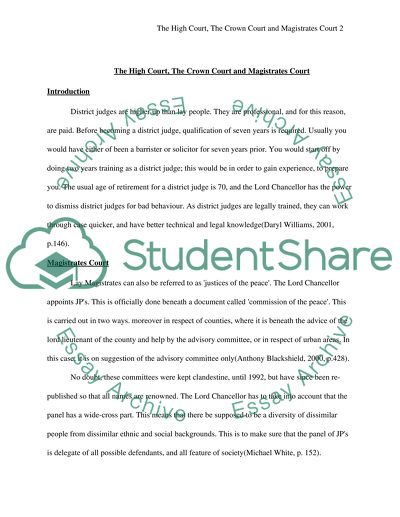Cite this document
(“The High Court, The Crown Court and Magistrates Court Essay”, n.d.)
The High Court, The Crown Court and Magistrates Court Essay. Retrieved from https://studentshare.org/law/1520623-the-high-court-the-crown-court-and-magistrates-court
The High Court, The Crown Court and Magistrates Court Essay. Retrieved from https://studentshare.org/law/1520623-the-high-court-the-crown-court-and-magistrates-court
(The High Court, The Crown Court and Magistrates Court Essay)
The High Court, The Crown Court and Magistrates Court Essay. https://studentshare.org/law/1520623-the-high-court-the-crown-court-and-magistrates-court.
The High Court, The Crown Court and Magistrates Court Essay. https://studentshare.org/law/1520623-the-high-court-the-crown-court-and-magistrates-court.
“The High Court, The Crown Court and Magistrates Court Essay”, n.d. https://studentshare.org/law/1520623-the-high-court-the-crown-court-and-magistrates-court.


